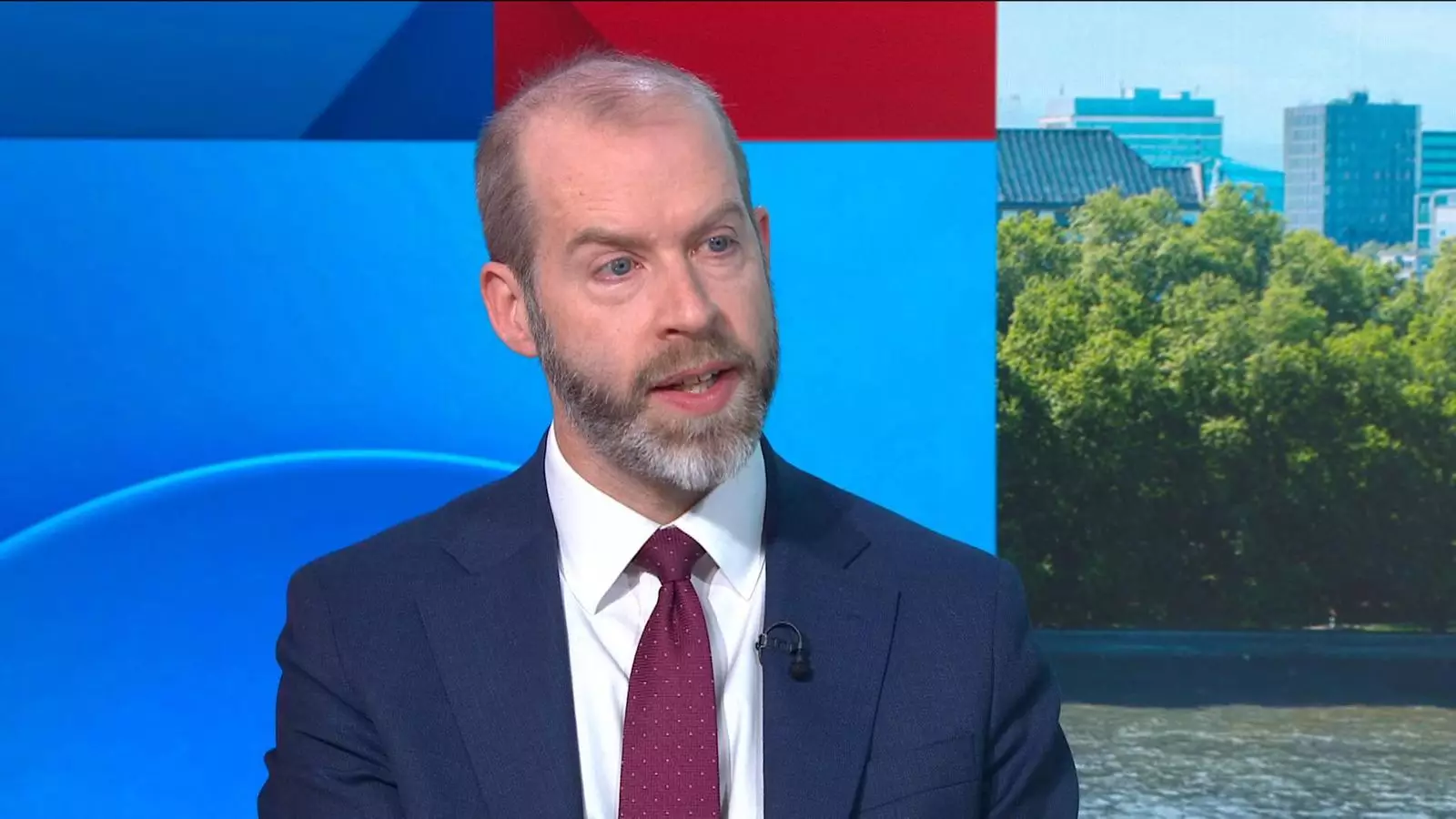The turmoil surrounding British Steel has unfurled a dramatic story of dependence, compromise, and urgent intervention. As the government rushed to save the UK’s only remaining integrated steelworks from collapse, it unveiled an unsettling reality: reliance on foreign investment can lead to dire consequences. Business Secretary Jonathan Reynolds’ declaration that he would never again welcome a Chinese company into the sensitive steel sector marks a significant turning point, one that paints a bleak picture for future industrial governance in the UK. His comments raise critical questions about the advisability and ramifications of foreign ownership in vital industries.
The recent crisis was set off by Jingye, the Chinese company that bought British Steel out of insolvency in 2020. When the company halted orders for essential raw materials necessary for steel production, it pushed the entire operation to the brink of disaster, compelling the UK government to intervene. This exemplifies a precarious situation that exposes the vulnerabilities intrinsic to foreign investments in strategic sectors. It is a warning signal, a wake-up call illuminating how reliance on foreign entities may place national interests at the mercy of decision-making from thousands of miles away.
The Steel Industry: More Than Just Metal
The phrase “sensitive area,” as uttered by Reynolds, underlines just how precarious the current landscape is for manufacturing in the UK. Steel, a backbone of industrial strength, is not merely about metal; it is about jobs, national security, and economic resilience. By allowing foreign control over such crucial undertakings, the UK has sacrificed a degree of sovereignty that could be catastrophic in times of crisis. When foreign companies like Jingye pull back their commitments, they jeopardize not just the livelihoods of thousands of workers but also the integrity of a nation that should ideally prioritize its own production capabilities.
Reynolds’ rationale resonates with many who argue that the stakes in the steel industry have transcended mere economics. This isn’t just a boardroom discussion about profit margins; it’s a matter of national pride and stability. By prioritizing security over profit, policymakers must reconsider the frameworks governing foreign investment. The ground beneath our feet is made of steel, but it is at risk from foreign influence that could crumble it.
The Public Ownership Debate
As the government crafts emergency legislation, the specter of public ownership has emerged as a “likely option.” This evokes strong sentiments and divides among policy makers and the public alike. Critics from all sides, including shadow cabinet members like Andrew Griffith, denounce what they characterize as a botched nationalization, arguing the government is merely picking up the pieces of a broken deal rather than genuinely committing to a sustainable strategy for UK steel. The notion of public ownership isn’t merely about control; it invokes fundamental questions about accountability and public interest.
Public ownership promises a safety net during turbulent times, but it also poses formidable challenges. Can a government effectively manage a steel business in a market-driven world? If the intent is to transition into modern steel technologies, creating the necessary investments will require deft handling of finances—a skill the government is often criticized for lacking. The tension between public interest and market dynamics is palpable, and the time to act is running out.
Despite the best intentions, the specter of poorly executed policies looms large. The clumsy hodgepodge of legislation lacks the foresight necessary for revitalizing the sector and establishing conditions for sustainable growth. Instead of a cohesive strategy, the UK appears to be lurching from one firefighting effort to another, undermining any faith in the long-term viability of British steel production.
The Road Ahead: Navigating Uncertain Terrain
As the dust settles from the latest crisis, the future of British steel remains tenuous. The narrative woven by foreign investment—complete with initial optimism followed by dramatic downturns—serves as a cautionary tale for future policymakers. As highlighted by Reynolds, the high “trust bar” for foreign companies speaks volumes about the fractured relationships that will dictate the future of this industry.
Urgent discussions must pivot toward redefining parameters for foreign investments, solidifying strategic industries, and emphasizing sustainable practices—an approach that many view as overdue. In pursuing a strategically sound and sovereign steel sector, the UK has a golden opportunity to redefine its industrial landscape and reinforce its economic autonomy, ensuring that future generations inherit a resilient manufacturing base rather than a precarious house of cards based on foreign whims.

Leave a Reply